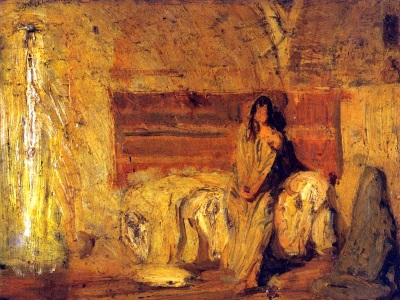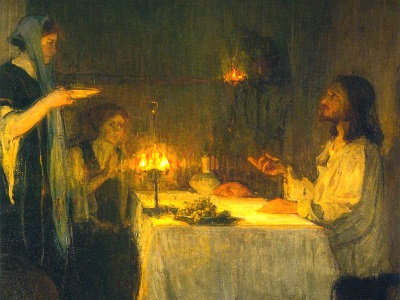God’s love is eternal and imperishable. It is the greatest and final revelation on our earth of God’s universe. Greed and vanity, possession and property must perish because they are worthless for the eternal. Even the highest gifts of language, knowledge, and prophecy belong to time and will perish with it (1 Cor. 13:8–10). Love, however, is simply life itself, life in every sense, full and everlasting life. Jesus has revealed to us that love is the greatest of all things. People who live in love fulfil the essence and the will of God. They live in God and God lives in them. There is no other community with God than that of love. Faith is alive only in love. Faith without love is nothing. If anyone brings forth the clearest proclamation and the purest teaching but has not love, that person is nothing but noise and smoke (1 Cor. 13:1).
The warmth that comes from God’s heart cannot be produced in any laboratory, by any decree, or by any organization. No friendly efforts or zealous benevolence can imitate this genuine gold. Whoever has felt this unique life power radiating from the elderly or from someone in a wheelchair knows it is independent of the physical freshness of youth. It is life itself. It is the one primary force, the original power springing from the deepest source. Wherever we meet this life power it is the effect of a cause, the cause of all being. Omne vivum ex vivo. Love begets love. He loved first who himself is love (1 Jn 4:8, 19). Only out of this first cause are we able to love.
Hence the love that is agape, in contrast to the intrinsically sick eros, bears the character of him who literally pours it out over us. It knows no bounds of space and time. It destroys nothing. It is the strength of unconquerable perseverance. It is steadfast faithfulness and is therefore equal to every task.
Agape, as genuine kindness, alone knows what is right for each person in every situation because it is free of the passionate stirring of naked eros, which seeks by all the wiles of jealousy to win or to hold what it supposedly loves. Agape clothes the energy of our love in the divine light of inexpressible purity, which can never be unseemly or ugly and can never injure the modesty or sensitivity of the soul. Because it is God’s love, it is free from all inflated arrogance, from all pretense, from all presumption for its own advantage.
Agape seeks and demands nothing for itself because it lives completely in the object of its love. It knows nothing of rights, for its nature is to abandon and forget the standpoint of rights, to find its happiness in giving. Vanity and envy are beneath it; therefore it can never be made harsh, never be thrown into excitement, and never be provoked to bitterness. Agape sees the essential nature and potentialities of those it loves; thus it does not take into account what may still be evil in them. And yet it has nothing to do with injustice. It concentrates its joy completely on the real, the genuine, the true in the soul of the other person (1 Cor. 13:4–6).
Agape sees through everything which still delays the holy calling of a soul. It has the strength to be a protection, to endure and ward off all dangers that threaten to obstruct a person’s destiny. It can do this because it is one with faith and hope, because it is completely in God, because it lives in the final fulfilment of humankind’s future. For this reason alone, it is able to stand firm everywhere and to endure everything (1 Cor. 13:7). Agape is present where the unfolding of the full powers of womanhood and manhood are given in Christ, but never where there is merely a passing effervescence or superficial enthusiasm.
Anyone who has read the sublime song of love in the original text as Paul wrote it (1 Cor. 13) knows that this was his expression of the Greek song of praise to agape. Those who feel something of this love arising in their hearts experience across the centuries and millennia the aliveness and timelessness of the same Spirit working directly in them. Slowly the light dawns within, so that we begin to sense how life could be opened to us by this perfect love. We long for this unspeakable happiness and feel what it means for all people to encounter him who radiates this life.
From the essay “Love Divine and Human,” which appeared in 1920 in Junge Saat: Lebensbuch einer Jugendbewegung (“Young Seed: A Handbook for a Youth Movement”). It was first published in English in Eberhard Arnold, Love and Marriage in the Spirit (Rifton, NY: Plough, 1965).
Article edited for length and clarity.


